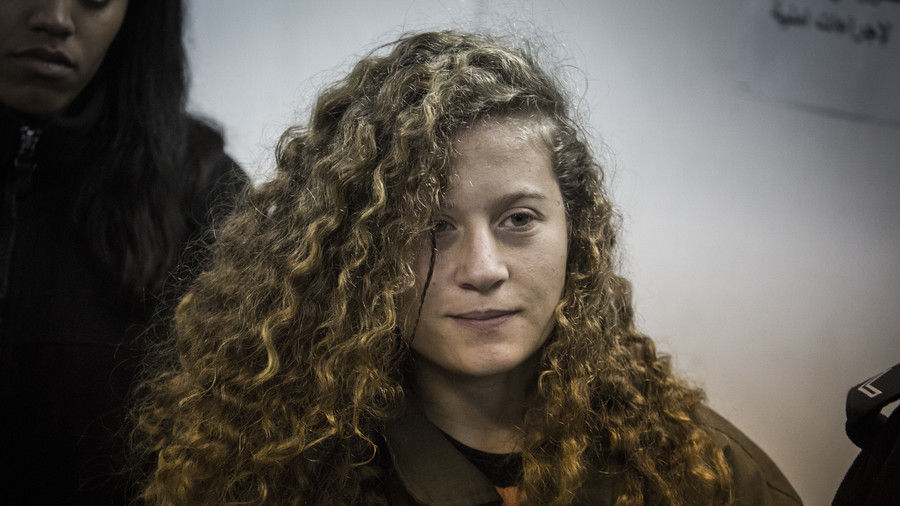Australia/Israel Review
Scribblings: The Rewards of Mass Murder
Aug 31, 2018 | Tzvi Fleischer

Readers are probably aware of the case of Ahed Tamimi, the Palestinian teen activist who slapped and kicked two Israeli soldiers back in January and also called for terrorist violence, saying all Palestinians “must do things” such as “stabbing attacks, or suicide attacks, or stone throwing” to help liberate Palestine. Tamimi has been much in the news since she was arrested in December, widely promoted as the poster child for the Palestinian cause, and then sentenced to eight months jail under a plea deal in March before being released in late July.
Readers are also probably aware of so-called “pay to slay” – the Palestinian Authority (PA) policy of paying substantial cash rewards and regular stipends both to Palestinians imprisoned for terrorist acts against Israelis, and also to the families of those Palestinians killed carrying out terror attacks. This has often been in the news since the US Congress passed the Taylor Force Act in March – restricting US aid to the PA until the “pay to slay” payments end. More recently, in early July, Australian Foreign Minister Julie Bishop announced Australia would be redirecting $10 million in Australian aid away from the PA and into UN aid programs largely to make sure that Australian money was not supporting “pay to slay.”
Well, the Israeli group Palestinian Media Watch (PMW) has done a calculation that brings together these two major news stories about Palestinian affairs over the past year – and helps reveal a pattern in Palestinian society.
PMW has researched the total payments given by the PA to the perpetrators of an infamous terror attack – the bombing of the Sbarro pizza parlour in Jerusalem on Aug. 9, 2001, 17 years ago. In that attack, 15 people were killed and dozens injured in an explosion set off in a crowded restaurant by suicide bomber Izz al-Din al-Masri. Seven of the fatalities were children, including Australian-Israeli 15-year old Malki Roth.
According to PMW, at least US$294,332 (around A$400,000) has since then been paid by the PA to the three key perpetrators of that bombing or to their families. The family of al-Masri has received at least US$50,124 as a reward for his suicide bombing, while the man who made the bomb, Abdallah Barghouti, now serving 67 life sentences, has received salary payments from the PA of at least $191,526.
The final recipient of PA largesse is the one that ties this story to that of Ahed Tamimi. Her aunt, Ahlam Tamimi, was the mastermind who coordinated the bombing, selected the target and drove the bomber to the restaurant. She was given 16 life sentences in 2001 – but was released in 2011 as part of the prisoner swap for kidnapped Israeli soldier Gilad Shalit. PMW estimates she was given at least US$52,681 in “salary” by the PA while she was in prison.
While the sums involved may not sound all that high by Australian standards, it is worth noting that the payments involved are several times higher than the average wage in the Palestinian territories.
The Palestinian Authority devotes around 8% of its total budget to payments to the families of terrorist “martyrs” like al-Masri and prisoners like Ahlam Tamimi and Abdallah Barghouti.
The point readers should understand from the above information is that the promotion, incitement and incentivisation of terror is deeply embedded in Palestinian society. It involves not only such payments but, for example, media reporting venerating “martyrdom operations”; official recognition by the PA of terrorists as heroes to be emulated, including by naming sports tournaments, buildings, schools and streets after them; and more recently, social media incitement.
Ahed Tamimi is not a girl who lost her temper against some soldiers and then said some unwise things, but a product of that systematic promotion of terror. Her family are professional activists and she has been brought up not only to serve as a tool in their campaigns – the incident in December was far from the first time she had violently confronted Israeli forces on camera – but to support “armed resistance”, meaning terrorism. She is, of course, not responsible for her aunt’s actions, but there is every reason to believe that she has been raised to support what her aunt did. Her mother, Nariman Tamimi, has defended the Sbarro bombing as “an integral part” of this struggle and is on social media praising and celebrating virtually every terror attack on Israelis.
Prison blues?
The case of Ahed Tamimi has been used by activists to highlight the fact that Israel is holding some 300 Palestinian minors, always described as “children”, in prison.
This is simply an emotive appeal – “why are children being thrown in prison?” – even though every legal jurisdiction in the world imprisons minors for crimes when necessary, and Israeli rates of doing so are not particularly high.
But what are conditions like for the small number of Palestinian minors in Israeli jails? Ask Ahed Tamimi.
Here is what she told Russia’s RT TV (Aug. 1) about her months in an Israeli prison:
“I did a lot of things: a legal course, we spent a lot of time on that, and matriculation exam studies; I read books; we would sing; we even had joint breakfasts of the entire wing – we would go outside, every room would bring its things, and we would eat together. We also ate lunch together most of the time. We also had parties; we would sit and sing, and dance… We watched TV, for example we jumped around in the rooms and did silly things; we did a lot of things.”
Doesn’t exactly sound oppressive, does it?
Tags: Israel, Palestinians






